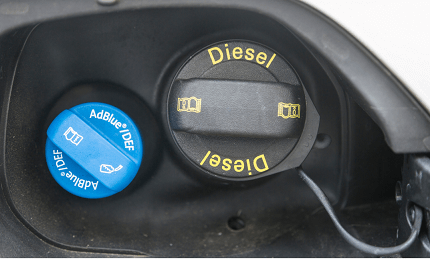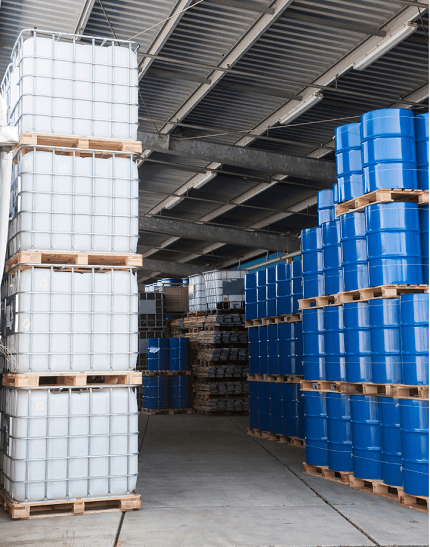Are you a diesel vehicle owner? You are likely required to use AdBlue®. This is utilised in a high number of cars, light commercial vehicles, HGV and public transport worldwide. But what is it, its functionality, and its usage? Continue reading to have all your AdBlue® questions answered.
AdBlue® is a toxic-free, colourless, odourless, non-flammable and biodegradable solution intended to help diesel vehicles reduce harmful exhaust emissions. It helps to cut down harmful nitrogen oxide (NOx) emissions which are created during the combustion process and turn them into harmless nitrogen and water vapour.
AdBlue® ingredients are a mixture of high-purity urea (32.5%) and deionised water (67.5%), as set out in the ISO 22242 standard. AdBlue® can also be known as AUS 32 diesel exhaust fluid (DEF).
AdBlue® works alongside vehicle engine selective catalytic reduction (SCR) systems and after the exhaust gas passes through the diesel particulate filter, AdBlue® is then sprayed and mixed into it via a dosing control system as it enters the SCR catalytic converter. This is where the ammonia within the urea reacts with NOx in the exhaust stream, neutralising it to form harmless nitrogen and water vapour, while additionally reducing total fuel consumption by 2-6%. AdBlue® and SCR systems are highly effective, reducing NOx emissions by up to 90%, hydrocarbon and carbon monoxide emissions by 50-90%, and particulate emissions by 30-50%.

You should be notified on your dashboard before running out by an AdBlue® warning light showing it is time to top up. You must keep your vehicles and equipment topped up with AdBlue® otherwise it will not be able to meet the emissions standards. If it does not meet these standards then it can lead to severe consequences, including large fines and penalties imposed by regulatory authorities.
This depends on several different things, such as the journey, your driving style, mileage, and environmental conditions. On most vehicles, it should indicate on your dashboard when you need a top-up of AdBlue®.
In a standard passenger car, it will usually use around 1 litre for every 350 to 600 miles however this is just an estimated figure. To find out the exact usage rates then please refer to your vehicle’s handbook or a qualified mechanic.
WCF Fuels are happy to be a reliable, local AdBlue® supplier to help you keep your pollution to a minimum and keep you on the roads.
We can supply in the below quantities:
If you are looking for a reliable, competitively priced bulk AdBlue® supplier, please contact our friendly sales team for a quote at 0191 5186770 or email us at sales.support@wcfnortheast.co.uk

WCF North East has been supplying fuel for over 110 years, we are a guaranteed high-value delivering service that offers the highest quality products only a truly dedicated local fuel supplier can offer.
From home heating oil to Road diesel to Red diesel we offer a wide range of fuels and services that are tailored to your wants and needs, whether you are a domestic homeowner, a commercial business, or an agricultural farm! From our offices to our depots our hardworking team members are here to make sure your experience with us is smooth from the first quote to the moment our driver delivers the fuel.
Buying our products and services is just the start with WCF North East, we also provide schemes such as priority customer, which rewards you with exclusive benefits and deals to thank you for your ongoing trust, loyalty, and custom.